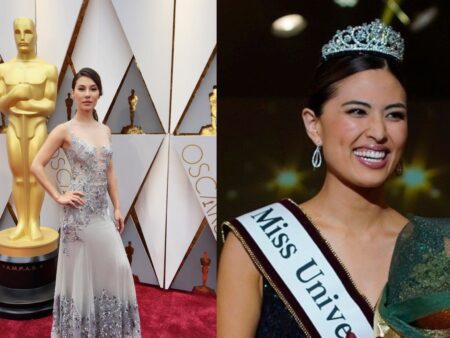
I had infertility and it was devastating. I was eventually able to have a baby, and now I am back at it, trying for a second. Having a baby tricked me into thinking that I might be able to forget my infertile past. I’ve learned the hard way that I couldn’t, yet there has been a silver lining.
Even though I still struggle with the physical, mental, and emotional challenges of dealing with secondary infertility, I have learned so much from having lived through the trauma of my primary infertility experience. Most importantly, this journey has taught me that it can be more bearable thanks to the support from an infertility community that has empowered me to find my voice—to advocate for myself and for others who aren’t ready to speak.
The first time around, after my husband and I tried to get pregnant naturally for a year and a half, I was unsatisfyingly diagnosed with “unexplained” infertility. I had begun fertility treatments, which included two IUIs and then my first IVF effort, which failed. That was a disappointment but nothing stung quite like the second time I didn’t get beyond the IVF retrieval, and was once again without an embryo to transfer. The defeat seemed boundless and I thought surely something was wrong with me, but I kept my anguish mostly to myself.
I was also exhausted from starting over so many times—at four clinics to be exact. Every new doctor was determined that he or she could handle my case and each clinic required that in-house labs be conducted at its facility. This grueling knowledge and process made it harder each of the four times to leave, but I had to because in one way or another, each specialist made me question his or her commitment to my success. I was learning that I had to keep looking for the right fit, not just listen to what I was told.
After parting ways with my fourth reproductive endocrinologist, I took a seven-month break from IVF to become reacquainted with someone I had lost touch with—me. During that time, I reconciled that I hadn’t failed at IVF; the science of IVF had failed me.
Supported by a new doctor, my husband, and a new-found infertility community— within a private Facebook group introduced to me by a friend — and a new love for nutrition and self-care, I jumped back into the treatment game.
After parting ways with my fourth reproductive endocrinologist, I took a seven-month break from IVF to become reacquainted with someone I had lost touch with—me. During that time, I reconciled that I hadn’t failed at IVF; the science of IVF had failed me.
My new and fifth fertility specialist supported the idea that I could contribute to my mental health and possibly even the results by following a healthy lifestyle and organic diet. For the first time I had a doctor who was able to explain his view on a healthy diet, lifestyle, had resource recommendations to share, and more importantly didn’t think I was crazy for thinking that I could possibly play a part in a better outcome.
After reviewing my history, my doctor initially recommended proceeding with an egg donor to increase my odds but supported my interest in trying IVF once more with my own eggs, with the hope that I might possibly retrieve some good ones.
For the first time, my cycle resulted in embryos, and of the two, one that was viable after genetic testing. The odds of a pregnancy post-transfer were in line with flipping a coin, and somehow luck was on my side that day.
I was, and still am, grateful for my pregnancy and the birth of my child, yet I felt initially guilty during each of those phases, for having left behind members of the TTC (trying to conceive) community. I worried that they might feel as upset as I once did when my treatments were failing and I saw pregnancy, birth announcements, and monthly milestone photos of beautiful beaming babies. At the time, I had tried to understand that these previously infertile mothers were so proud about how hard that they had worked to have a baby, but I couldn’t help that each time it still felt like a band-aid being ripped off a fresh wound.
Once I became visibly pregnant and then had my baby, I distanced myself from the TTC community that had embraced me during one of the most difficult times of my life. I had become uncertain about how to approach them because I didn’t want to cause them any additional pain.
I was introduced by a friend to a post-IVF mom’s group and these new friends taught me that it was possible to pay support forward to the TTC community in a way that would not be offensive. This also allowed me to shed a little bit of the infertility survivor’s guilt.
I credit this group in teaching me that the sisterhood created by infertility is not partial to where someone is in the process – we will always be in it together.
I am once again on another infertility journey, as my husband and I try to have a second child. And while I am not excited to be in the trenches again, I am grateful that I am surrounded by my infertility community.
I also now know how to communicate thoughtfully by separating my personal social media channels (where I talk about my baby) to avoid possibly triggering someone in the TTC community. The infertile experience has taught me the importance of asking how much a friend on an infertility journey might like to be involved (or not) in certain celebrations such as baby showers, birthdays, or holidays. I also make the time to see them outside of these occasions if that is what they prefer. I know, because I have been there.
In fact, I am currently reliving the depths of my own IVF trauma by going through it again, and now with a new set of emotions as a parent. I have had a lot of self-discussion about how lucky I am to have a child and often ask myself why I feel compelled to try again, let alone to resort back to fertility treatments. The guilt has now shifted from having a child (while others did not) to the possibility of having a second while well-intentioned individuals say, “at least you have one.”
I hadn’t been thinking about having another child until about a year ago. A rush of hope was stirred up when my OB/GYN shared new research that indicated that some women can be more fertile after having recently conceived a child. I also began to see my friends become pregnant naturally with their second baby at around age 40. And while I am not surprised that I still haven’t gotten pregnant naturally, I was hoping that perhaps another miracle might happen—that this time I could have a baby without the aid of science.
Now that I am back in the thick of fertility treatments, I have noted that it’s not necessarily easier but I know what to expect or rather, what not to expect – a guaranteed baby. I have made peace with myself and my process, and as a result, I am more comfortable speaking up and reaching out to others.
Now that I am back in the thick of fertility treatments, I have noted that it’s not necessarily easier but I know what to expect or rather, what not to expect – a guaranteed baby. I have made peace with myself and my process.
Most aspects of my fourth IVF cycle feels clinically similar to those initial IVF treatments but emotionally different because I feel so much more supported and comfortable sharing my own experiences. I often reflect on my first three IVF cycles when I avoided any unnecessary eye contact in the clinic waiting room by keeping my eyes fixed on my phone.
On more than one occasion I looked up from my phone and accidentally made eye contact with another woman. I would quickly look away and then wonder if I should have said something. Did she want to talk? Did I want to talk? Would I break some sort of secret fertility-treatment-waiting-room code if I smiled, let alone said something? Both of us obviously had something in common as we both patiently awaited treatment. But as always, neither of us ever made the first move, let alone a move at all.
That changed when I began my most recent IVF treatment earlier this year and a connection happened more naturally than I could have anticipated.
I had just left the treatment room after the routine poking and prodding, all the while discussing world news with my fertility doctor to avoid the reality of what was really happening underneath my hospital gown. As I walked out of the clinic doors and towards the elevators at the exact same time as another woman (which was awkward), I remarked to her that I loved her red shoes. I am not sure if I spoke up because I was slightly uncomfortable that my exit was oddly timed with hers or because I was actually smitten with her shoes. Either way, the compliment fell out of my mouth as we entered the elevator and I was pleasantly shocked when she said: “Thank you for the compliment—and for saying something.”
She then continued: Why is the waiting room so uncomfortable? Aren’t we all here for the same reason?
For the next hour, in the cold spring air outside the clinic, we marveled over the always uncomfortable waiting room topic, talked about our fertility stories, how we had met our husbands, and which local nail salons were fertility friendly. Although we only met a few months ago, I was lucky enough to make a forever-friend bonded by a place no one wants to be—infertility.
Having experienced multiple rounds of IVF and having had a baby has changed my outlook on what happens next. I have found my voice and now welcome the eye contact and the initially uncomfortable waiting room chat.
I may not be in control of the fertility outcome, and I still don’t quite understand my “unexplained” diagnosis, but I am acutely aware that I can feel better during the process.
I now ask questions, advocate for myself and my health (especially now that I am in part living for another small human being), and find relief by swapping stories with like-minded women. While I am not a fertility doctor, I know my body better than anyone and if I don’t understand a recommended protocol or procedure, I won’t proceed until I am comfortable. Luckily, I now have doctors whom I vibe with. They are confident enough to welcome my questions, and don’t make me feel bad for asking them.
If it is not in the cards that I should have another child, I am so grateful for the one that I have, that I met the right doctor for me, and that I have been reunited with an incredible support community that speaks the same infertility language as I do.
We do not have to be ashamed, isolated, and silent, and together we can support each other in so many ways – including simply chatting with each other in the waiting room.
Contributor
Nathalie Carpenter
Nathalie Carpenter is an infertility awareness advocate, writer, blogger (Fertilust.com/@fertilust) and wellness marketing strategist, who recently founded Well + Luxe. She has 18 years of luxury brand marketing and communications experience with brands including Audi, Mercedes-Benz, Ferrari, Grey Goose Vodka, and Crumbs Bakeshop. Nathalie lives in NYC with the loves of her life, her husband and daughter.

Listen to stories, share your own, and get feedback from the community.


















